Condition loss, when to call your vet and what to expect

About the author: Dr. Edd Knowles is the Global Equine Science & Nutrition Director at Mars Horsecare, home of the SPILLERS brand and Head of Equine Studies - Waltham Petcare Science Institute. Edd graduated from Cambridge University as a Veterinarian in 2005, initially working in small animal practice before moving to equine practice in 2007. Edd has enjoyed roles in first-opinion practice, a specialist hospital, and a diagnostic laboratory, becoming a specialist in Equine Internal Medicine in 2014. Edd previously worked for Bell Equine Clinic where he balanced his clinical work with research, with the focus on laminitis.
It is normal for a horse’s weight to fluctuate a little during the year with weight gain during the spring and summer and weight loss during the winter. These fluctuations can be greater in native breeds particularly if living out all year round. The cooler months can be very helpful when trying to reduce or control horses’ weight but sometimes weight loss becomes more of a concern.
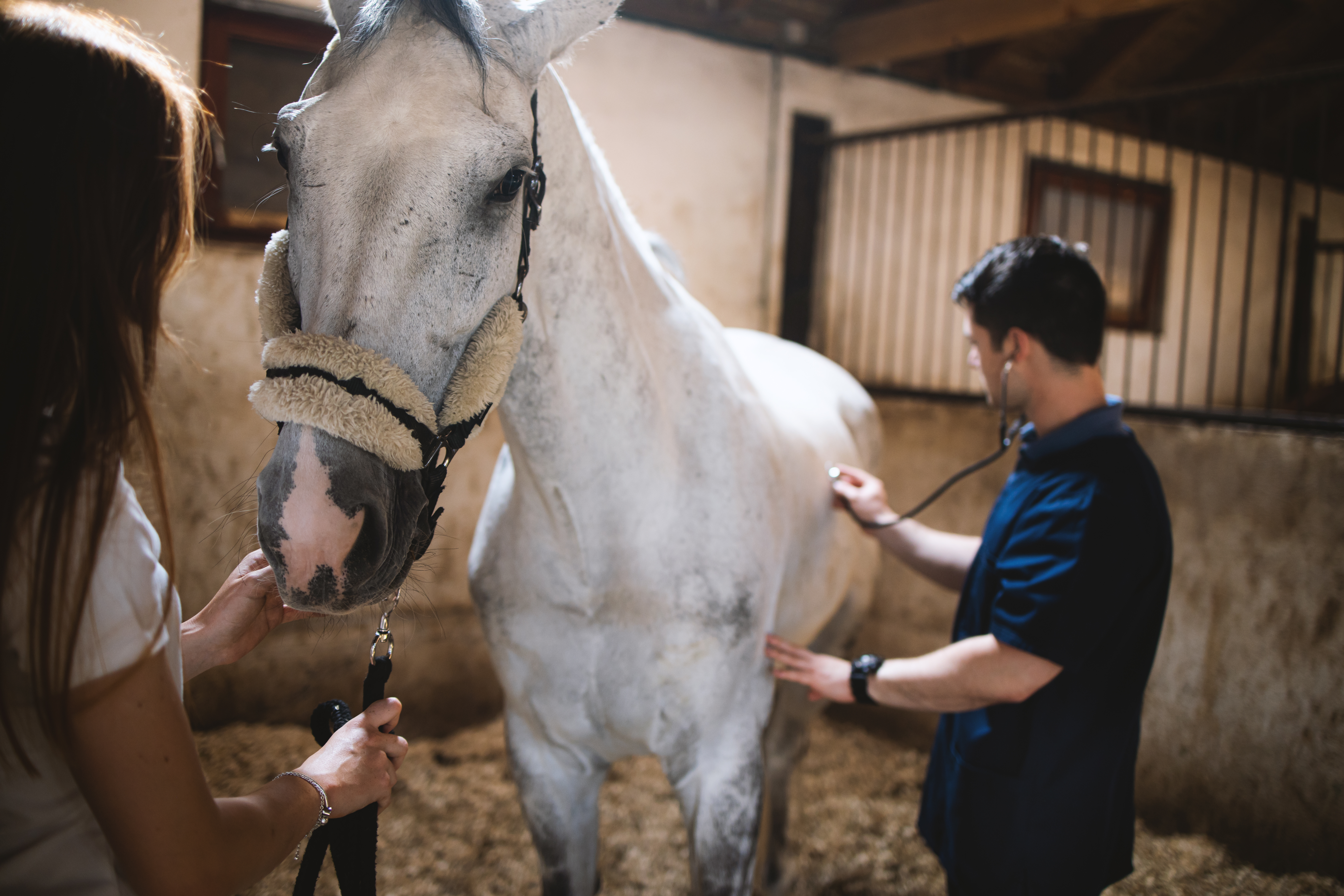
Some horses tend to be ‘poor doers’ and may need a helping hand from some extra calories and adjustments to their diet every winter. Most of these horses bounce back again in the spring and follow a similar pattern each year. A review of your horse’s diet is sensible in any case of weight loss but weight loss can also be a sign of illness that cannot be addressed by dietary changes and may require further investigation from a vet.
Veterinary advice should be sought in situations in which:
- There is significant weight loss despite a good appetite and suitable diet.
- If the horse has difficulty eating, chewing or swallowing.
- If the horse shows other symptoms such as loose droppings, skin or coat changes, changes in character or reduced energy levels.
- If the horse is excessively thin (below 4/9- find out about body condition scoring here(open in new tab)).
- If the weight loss is unexpected such as condition loss in a horse that is usually a good-doer.
What do vets do with weight loss cases?
Many different illnesses can cause weight loss and pinning down the precise cause can be difficult. Vets often need to consider a long list of possible causes that can be narrowed down with information from the owner, by examining the horse and by using other techniques such as blood tests, faecal tests and sometimes ultrasound and other investigations. The approach taken by the vet will depend on the characteristics of the individual horse, their environment and any information about their previous health. Often the cause is identified by piecing together different pieces of information rather than a single test.
The age of the horse can help guide the vet to more likely causes. Weight loss due to worms can occur in any age of horse but is more common in youngstock and to an extent very old horses. A review of worm control, blood tests for worms and poo testing for worm eggs can all be helpful.
Age, together with other symptoms can also be a prompt to test for Pituitary Pars Intermedia Dysfunction (PPID also known as Equine Cushing’s Syndrome). This can be a common cause of muscle wasting in older horses.
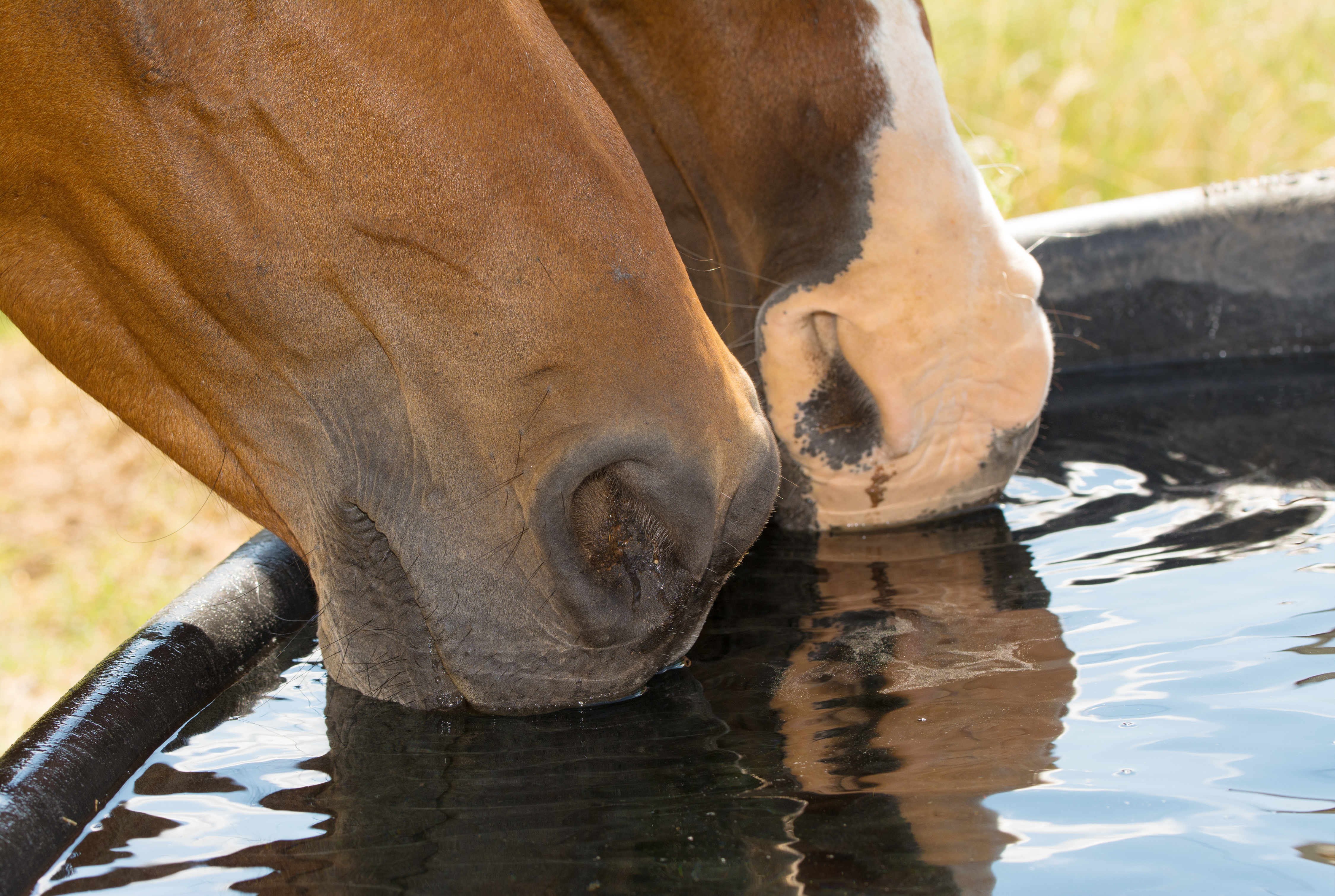
Information provided by owners about about diet, the quantity and consistency of poo, drinking, urinating, general behaviour and any medications can give important clues. Vets will want to ensure that the diet is sufficient and balanced and may seek additional nutritional support in some cases. The quantity and consistency of poo give an indication of how much the horse is eating and the health of the guts. Changes to drinking and urination can be seen in cases of PPID or kidney disease but may also occur in healthy horses sometimes reflecting diet or management changes.
Many horses are able to continue eating despite dental disease but it is important to ensure that the horse is comfortable eating and that the diet is appropriate for the horse’s teeth. Older horses in particular can have real difficulties with long fibres and may need more regular dental examinations and care.
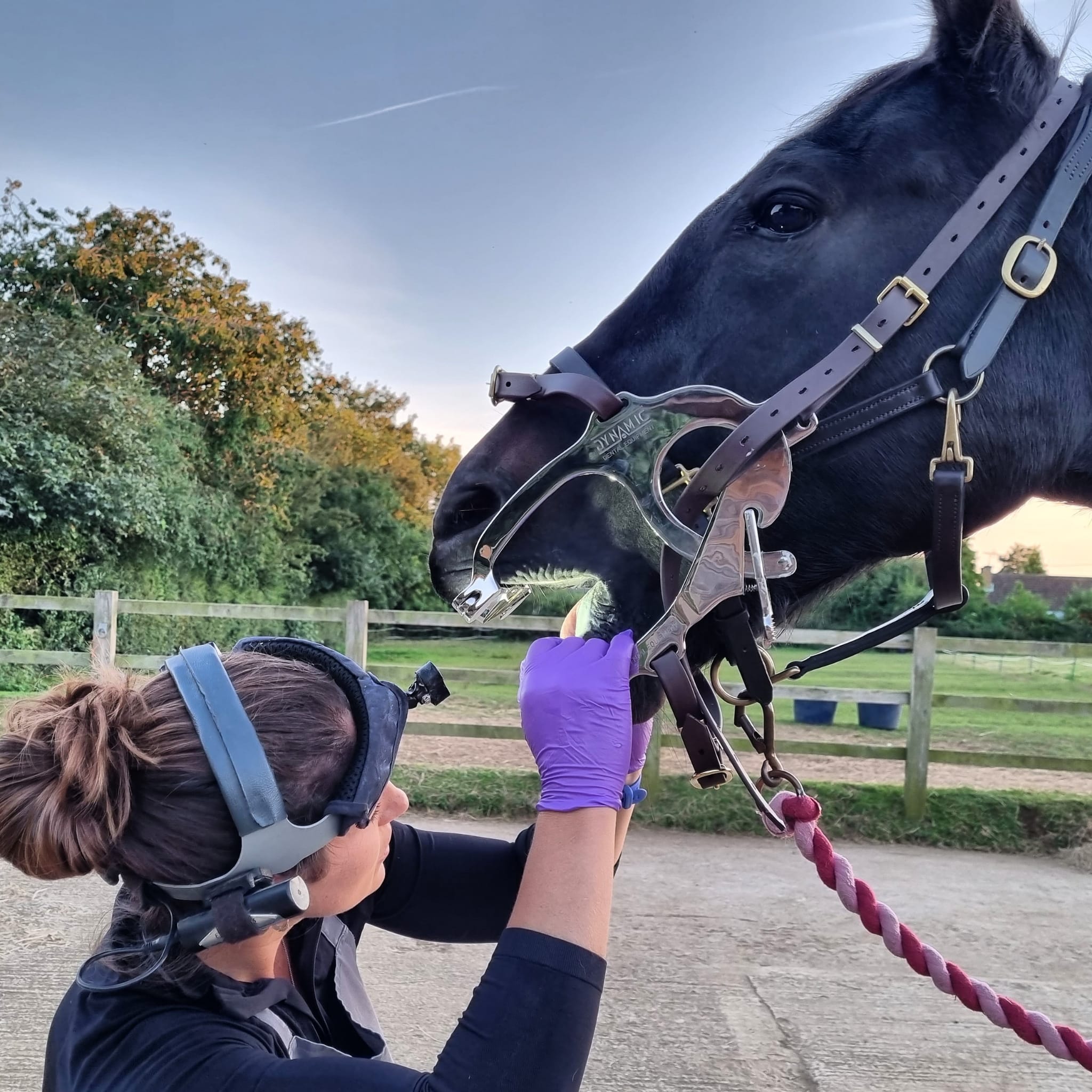
Routine blood tests can also be very helpful. A standard panel would include information about the number and types of blood cells together with indicators of the health of major organs such as the liver and kidneys, protein levels and signs of inflammation. These routine tests often indicate a problem with a particular organ but do not provide a definite cause for that problem and further tests may be needed. For example, changes to white blood cell levels together with changes in inflammatory proteins usually indicate that the horse’s body is responding to an infection but don’t tell the vet what that infection is. Other tests might reveal a cause such as worms or a bacterial infection.
Low protein levels on blood tests are often a prompt for further investigation of the guts. Assuming that the horse is eating enough protein then low levels can indicate that the horse is not absorbing the protein from the intestines or that it is using up protein or losing it quickly. Ultrasound scans can help investigate gut health although due to the size of the horse many areas cannot be seen. Potential causes of low protein can include inflammatory or bacterial bowel disease, some long-term medications and tumours as well as many other causes.
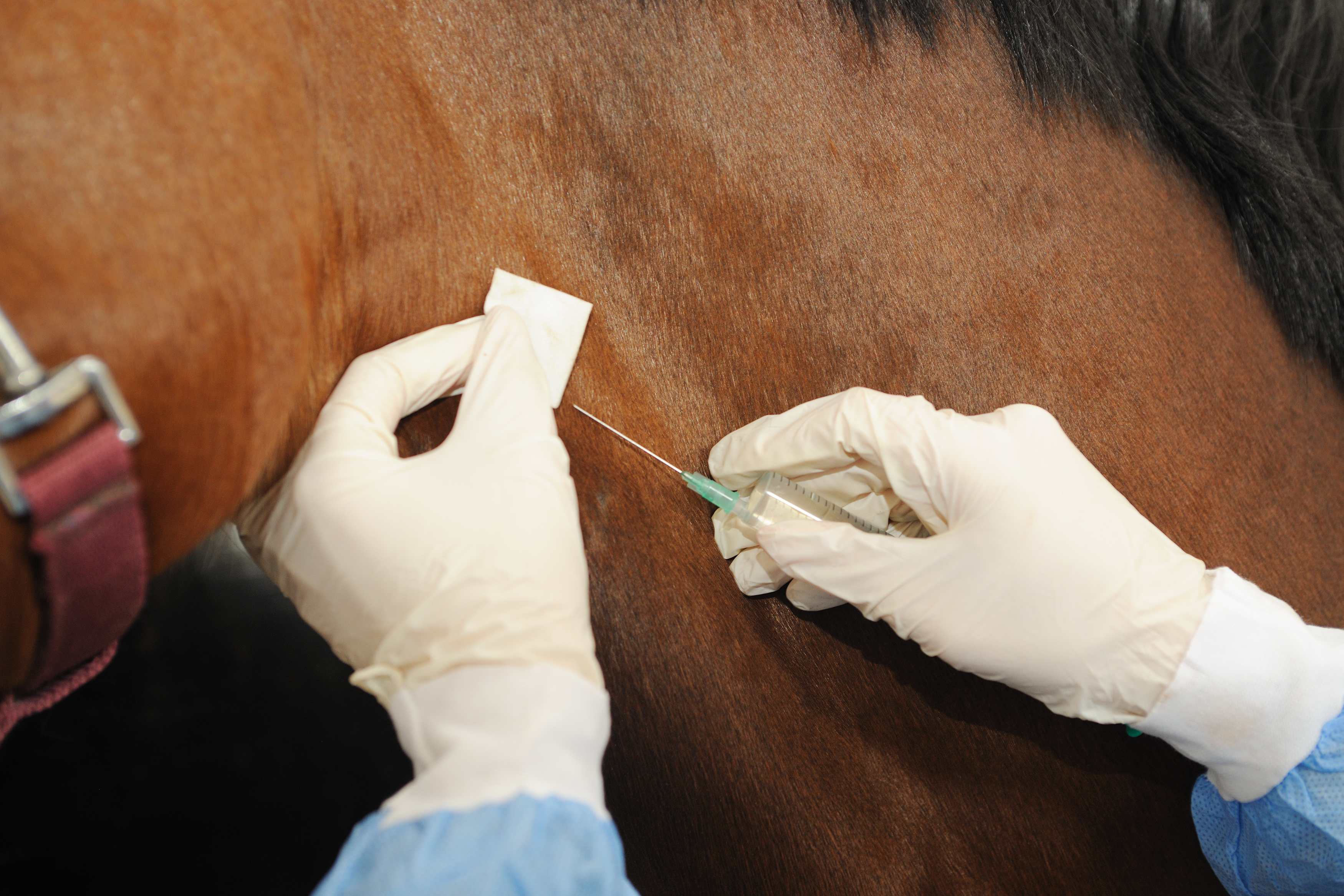
Liver disease can also cause weight loss and can be indicated by blood tests. Low levels of damage to the liver are quite common but often do not appear to cause problems because the remaining liver is still able to do its job. Thankfully the liver is also good at repairing itself after mild damage. More serious problems can occur when liver disease is severe or long-term when the remaining liver is not able to fully function.
There is a long list of other potential causes of weight loss some of which can be difficult to identify. In older horses tumours can be a concern and can be difficult to diagnose. The large size of horses prevents vets from using some of the techniques used in other species such as whole body CT or MRI scans.
In summary, you should call your vet if you have concerns about your horse losing weight and in particular if the weight loss is severe, unexpected or accompanied by other problems. Vets will need to consider a number of possible causes for the weight loss. Finding a definite cause can be difficult and often requires piecing together several different pieces of information or tests. The SPILLERS experienced nutrition specialists are available to support vets and owners with feeding recommendations and product advice via the Care-Line(open in new tab), Monday-Friday, 9am-5pm.
